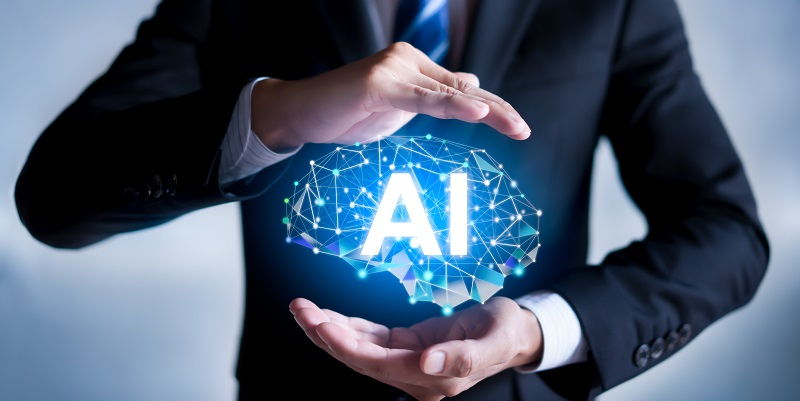In today’s fast-paced business world, technology has become an integral part of reshaping how HR professionals operate. Rather than replacing people, technology serves as a tool to streamline processes, optimize operations, and enable HR teams to focus on higher-value tasks. This article explores the role of technology, particularly AI, in revolutionizing HR practices and the challenges that HR professionals face in adopting and understanding these advancements.
The Importance of Technology in Reshaping HR Operations
Technology, with its ability to automate tasks and provide efficient solutions, has significantly transformed the HR landscape. By adopting technological tools, HR professionals can eliminate time-consuming administrative tasks, create streamlined processes, and enhance productivity. This allows HR teams to shift their focus and engage in more strategic and value-added activities, such as talent acquisition, employee development, and fostering a positive workplace culture.
The Role of Technology in Optimizing Global HR Teams
With HR teams now spread across the globe, technology plays a critical role in optimizing their operations. Collaborative software, video conferencing tools, and cloud-based platforms enable seamless communication and collaboration among geographically dispersed teams. This empowers HR professionals to effectively manage and support employees, regardless of their location, while maintaining consistency and efficiency in HR processes.
AI capabilities for automating administrative tasks in HR
The current capabilities of Artificial Intelligence (AI) offer immense potential for HR automation. AI-powered systems can effectively handle routine administrative tasks, such as resume screening, scheduling interviews, and answering employee queries. This automation not only saves time but also enables HR professionals to focus on strategic initiatives such as talent management, employee engagement, and creating a positive work environment.
HR Professionals’ Interest in AI and the Need for Understanding and Trust
HR professionals are genuinely interested in exploring the possibilities of AI in their field. However, one significant hurdle lies in comprehending and trusting the technology they adopt. Understanding how AI algorithms work, their potential biases, and the ethics surrounding their implementation becomes crucial for HR professionals to make informed decisions. Trust in the technology is essential, especially when it comes to unbiased decision-making processes related to recruitment, performance evaluations, and promotions.
Concerns about bias in AI and the challenge of understanding software workings
Bias in AI systems poses a significant concern for HR professionals. If they do not fully understand how a software solution functions and interprets data, analyzing its potential biases becomes challenging. The consequences of biased algorithms can lead to discriminatory practices in employee recruitment, evaluation, and development. HR professionals need transparency and comprehensive knowledge of the technical aspects of AI systems to ensure fairness and prevent unintended biases.
Utilizing Data Sets to Minimize Bias in AI
While eliminating bias entirely in AI algorithms may be a daunting task, HR professionals can utilize diverse and representative data sets in training algorithms. By incorporating a range of demographics, backgrounds, and experiences, HR professionals can work towards minimizing biases and creating fairer AI systems. Regular audits and continuous monitoring of AI models can help identify and address any biases that may arise.
Collaboration between HR and AI vendors to address bias challenges
To tackle the challenge of bias effectively, HR professionals must foster collaborative relationships with AI vendors. By working closely with these vendors, HR teams can ensure transparency in AI algorithms, gain insights into the decision-making processes, and work jointly towards remedying biases. This collaboration can lead to improvements in the technology and promote ethical and fair HR practices.
The Importance of Practicing Diligence with Third Parties for Transparency
In the integration of AI in HR processes, it is crucial for HR professionals to practice diligence when engaging with third-party vendors. Thoroughly vetting vendors, reviewing their algorithms, and conducting periodic audits can ensure transparency and address any concerns regarding bias. By taking proactive steps to evaluate and monitor AI systems, HR professionals can maintain control over their technology adoption and uphold ethical practices.
Curiosity and Excitement about AI Integration in HR
The integration of AI in HR has sparked curiosity and excitement among professionals in the field. The potential for AI to revolutionize recruitment, employee engagement, and talent management processes has created an environment of forward-thinking and innovation. HR professionals are eager to explore the possibilities that AI offers and are keen to stay updated with the latest advancements in the field.
Remarkable Potential and Impacts of AI in HR, Particularly ChatGPT
Among the myriad of AI applications in HR, ChatGPT stands out for its remarkable potential and impact. This AI-powered chatbot can provide personalized support to employees, answer queries, and offer guidance on HR policies and procedures. With its ability to understand natural language and context, ChatGPT enhances employee experiences, improves response times, and assists HR teams in managing day-to-day operations more efficiently.
As technology continues to evolve, HR professionals must adapt and embrace the remarkable potential of AI. By understanding and trusting the technology they adopt, HR professionals can leverage AI to optimize their operations, enhance employee experiences, and drive strategic initiatives. Collaboration with AI vendors, practicing diligence with third parties, and continuously monitoring for biases are key steps toward creating fair, transparent, and effective AI-powered HR practices. With careful implementation and ethical considerations, AI has the power to revolutionize HR and contribute to the success of organizations in the digital era.

